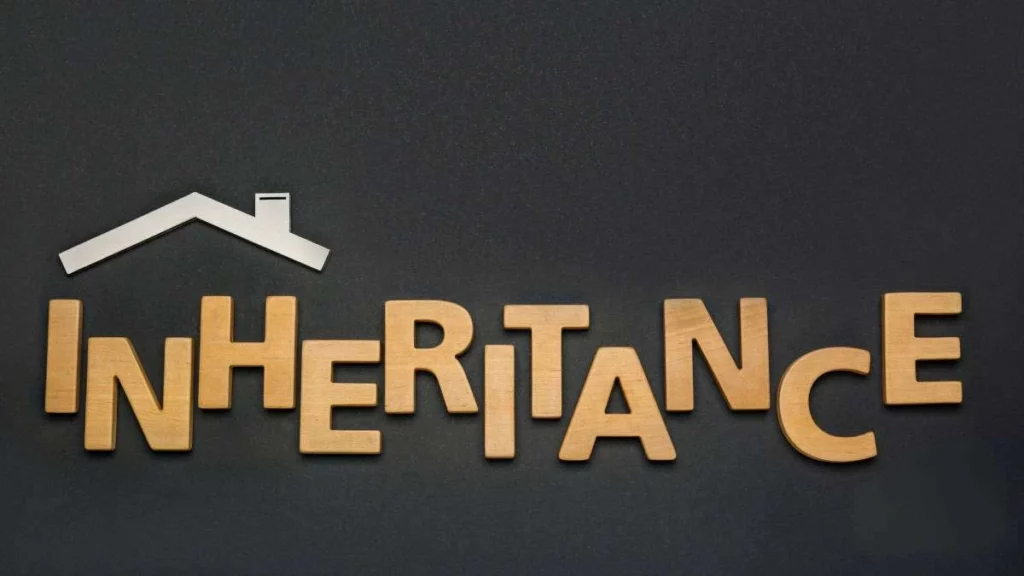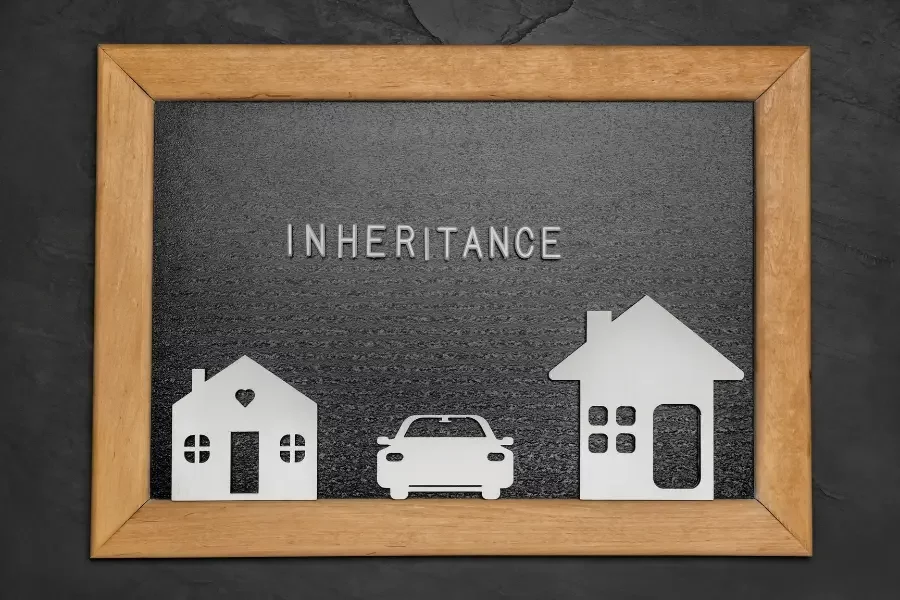Inheriting property in Tampa, Florida, can come with many opportunities and challenges. If you’ve inherited a share of property and are considering selling it, understanding your rights and the process is crucial. This comprehensive guide will provide everything you need to know about selling your share of inherited property, including legal considerations, tax implications, and different selling options. Whether you’re dealing with a house in good condition or an inherited property that needs repairs, this article will walk you through your options.
Understanding Your Inheritance Rights

In Florida, the process of inheriting property is governed by either a will (if the deceased person had one) or the state’s laws of intestate succession (if the person did not have a will). If you are named in the will or are a legal heir under Florida law, you may have rights to the property. However, before selling, it’s essential to understand the legal framework of inheritance, probate, and the rights of co-owners.
Probate Process in Florida
In Florida, the majority of estates go through probate, which is the legal process of distributing a deceased person’s assets. Probate is necessary to ensure that the property is transferred legally to the heirs. It involves validating the will (if there is one) and settling any debts or taxes owed by the estate before the remaining assets are distributed.
- How long does probate take? Probate in Florida can take anywhere from a few months to over a year, depending on the complexity of the estate and any disputes among heirs. During probate, the court will issue Letters of Administration, which grant the personal representative (executor) the authority to manage the property.
- Will vs. Intestate Succession: If the deceased left a will, it would specify who inherits the property. If there’s no will, the property will pass according to Florida’s intestate succession laws. The property is usually distributed to close family members such as children, spouses, or parents. You can also read more about Florida’s intestate succession laws from NOLO’s Florida Intestate Succession Guide.
Ownership Rights of Co-Heirs
If multiple heirs inherit the property, each individual holds a percentage of ownership, typically under a legal arrangement called “tenancy in common.” This means that each heir has a specific, undivided interest in the property.
- Can I sell my share of the property? Yes, as a co-owner, you can sell your share of the inherited property, but it’s important to note that selling fractional interests can complicate the process. Selling your share may require dealing with other co-owners, and the property could become less marketable to potential buyers who may not want to buy a fractional interest.
- Agreement Among Heirs: Ideally, all co-owners should agree to sell the property together. If some heirs do not want to sell, this could result in delays or legal disputes.
Co-Ownership and Selling Your Share
When you inherit property with other individuals, selling becomes more complex. Here’s what you need to know about co-owning an inherited property and your ability to sell:
1. Agreement Among Heirs
If all heirs agree to sell the property, the process is much easier. However, in many cases, co-owners may not be on the same page. Disagreements among heirs can result in delays, negotiations, or even the need for a court intervention to force the sale.
- Family Mediation: Before seeking legal action, consider mediation as a way to settle disputes. A neutral third party can help facilitate communication and ensure that everyone’s interests are taken into account.
2. Partition Action
If the co-owners cannot agree on selling the property, a partition lawsuit can be filed in court. This legal action forces the sale of the property or orders it to be divided among the heirs.
- Partition by Sale: In some cases, the court may decide that the property should be sold and the proceeds divided among the heirs.
- Partition by Division: If the property is large enough or can be physically divided, the court may allow each heir to take ownership of a portion of the property. This, however, isn’t always feasible for residential properties.
3. Selling to a Cash Buyer
Selling your share of inherited property to a cash buyer can be an option if other heirs are not interested in selling. Cash buyers are often more flexible in buying fractional interests or properties that require quick closing. However, it’s important to note that selling a fractional interest in a property may result in a lower sale price because it’s more difficult for a buyer to secure full ownership rights.
Preparing the Property for Sale

Before listing the property for sale, there are several factors to consider in terms of preparing the property. Whether you’re selling the property as-is or planning to make repairs, here’s what you should know.
1. Assessing the Property’s Condition
Inherited homes can range from newly renovated to outdated or even in disrepair. Regardless of the property’s condition, it’s essential to assess what repairs (if any) are needed before listing the property.
- Repairs: If the property needs significant repairs, such as plumbing or roof issues, you’ll need to determine whether it’s worth fixing them before selling. This can add to the property’s appeal but also increases upfront costs. For tips on evaluating your home for repairs, visit HomeAdvisor’s True Cost Guide.
- Cosmetic Updates: In some cases, a simple cleaning, fresh coat of paint, or landscaping can increase the home’s value and curb appeal.
- Appraisal: A professional appraisal can give you an accurate idea of the property’s market value. It’s helpful in deciding whether to make repairs and how much to ask for the property.
2. Cleaning and Staging
A clean, well-presented property typically sells for more. Consider hiring professionals for deep cleaning and staging the home to make it more appealing to potential buyers.
Tax Implications
Selling inherited property in Florida has specific tax implications. Understanding these can help you make more informed decisions about the sale.
1. No Inheritance Tax in Florida
Florida does not have a state inheritance tax, which means heirs do not have to pay a state tax on the inherited property. However, federal estate taxes may apply depending on the size of the estate.
2. Capital Gains Tax
When selling inherited property, capital gains taxes may apply. However, there’s a significant advantage when selling inherited property: the “stepped-up basis” rule.
- Stepped-Up Basis: The value of the property is adjusted to its fair market value at the time of the decedent’s death. This means you will only pay capital gains tax on any appreciation of the property that occurred after the inheritance. This can result in a lower tax liability.
3. Consulting a Tax Professional
It’s highly recommended to consult with a tax advisor to understand the full scope of any taxes you may owe and how to properly report the sale.
Selling Options for Inherited Property

Once you’ve determined the legal, financial, and physical readiness of the property, you can consider your selling options. Here are a few common methods:
1. Traditional Sale
In a traditional sale, the property is listed with a real estate agent, and potential buyers make offers. The advantage of this method is that it often brings the highest possible price for the property.
- Real Estate Agent: A real estate agent can guide you through the selling process and handle negotiations on your behalf.
- Time-Consuming: The traditional sale process can take months, depending on market conditions and the property’s condition.
2. Selling to a Cash Buyer
Selling to a cash buyer can significantly speed up the process. Cash buyers are often investors or individuals who buy homes as-is and close quickly. If the property is in poor condition or you need to sell fast, a cash buyer may be the best option.
- Pros: No repairs needed, no realtor fees, and a quick closing.
- Cons: Cash buyers may offer a lower price than what you could get on the open market.
3. Auction
Another option is to sell the property at an auction. This method can attract buyers looking for a deal, but it also carries risks.
- Pros: Quick sale and competitive bidding may drive up the price.
- Cons: You may not get as much as you would in a traditional sale, and there’s no guarantee of selling for a fair price.
Steps to Take When Selling Your Share of Inherited Property
Here’s a quick checklist to guide you through the process:
- Confirm Ownership: Make sure your name is on the title and that you have the legal right to sell the property.
- Consult Professionals: Speak with a probate attorney, a real estate agent, and a tax advisor to understand your options and any implications.
- Discuss with Co-Heirs: If there are other heirs, make sure you have open communication about the sale to avoid conflicts.
- Prepare the Property: Assess whether repairs are necessary, get an appraisal, and clean and stage the property if needed.
- Evaluate Selling Options: Choose whether to list with a realtor, sell to a cash buyer, or use an auction.
- Close the Sale: Work with professionals to ensure the sale is legally and financially sound.
Frequently Asked Questions
Q1: Can I sell my share of an inherited property without the other heirs?
A1: Yes, you can sell your share, but selling a fractional interest can be complicated. It may require the consent of the other co-owners or a legal partition process.
Q2: Do I need to go through probate to sell the property?
A2: Yes, probate is necessary unless the property is held in a living trust, which can bypass the probate process.
Q3: How long does the probate process take in Florida?
A3: Probate in Florida can take anywhere from a few months to over a year, depending on the complexity of the estate.
Q4: Will I owe taxes on the sale?
A4: You may owe capital gains tax, but Florida does not have an inheritance tax. Consult with a tax professional to fully understand your situation.
Wrapping Up the Process of Selling Inherited Property in Tampa, FL
Navigating the process of selling your share of inherited property in Tampa, FL, involves a blend of legal steps, emotional considerations, and practical decisions. Whether you’re dealing with a well-maintained home or one that requires significant repairs, understanding the intricacies of Florida probate law and co-ownership rights is essential.
The options available for selling—whether through traditional methods, cash buyers, or auctions—offer different advantages depending on your situation. If you share the property with others, communication and legal agreements are vital to avoid conflicts. Handling tax implications correctly and seeking professional advice can save you time and money in the long run.
With the right knowledge and preparation, selling inherited property can be a smooth process. By working with legal, financial, and real estate professionals, you can ensure that all steps are handled properly, giving you peace of mind as you move forward with your decision.

